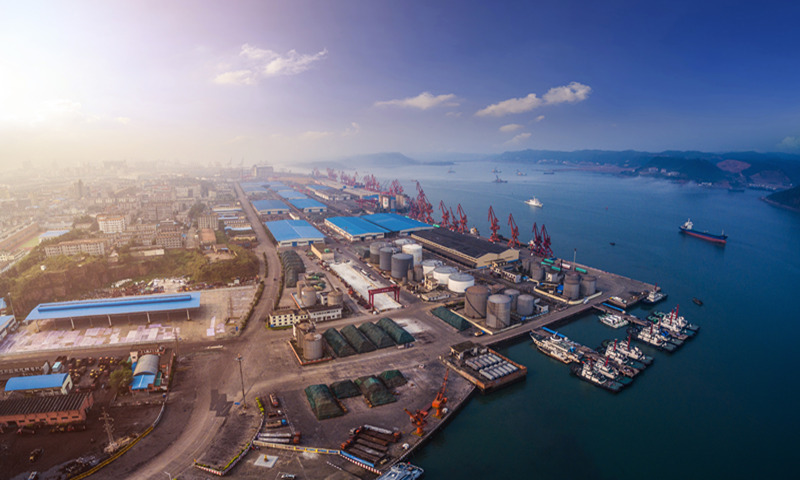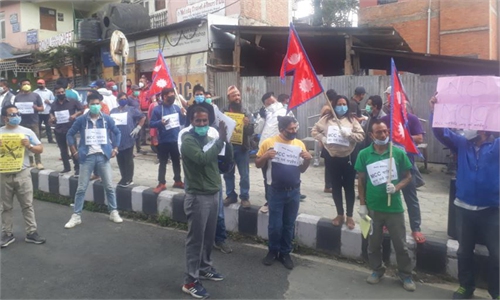
Fangcheng Port in South China's Guangxi Zhuang Autonomous Region, which sits on the New International Land-Sea Trade Corridor route connecting Southwest China's Chongqing Municipality, the ASEAN and Singapore Photo: VCG
On Tuesday, South China's Guangxi Zhuang Autonomous Region will hold its second conference for overseas Chinese entrepreneurs, one of the first local business fairs to re-launch after the COVID-19 crisis, though it will remain online. Thanks to Guangxi's geographic location neighboring Southeast Asia, it will also bring much-needed opportunities for companies to expand their operations in the region.
According to local authorities, the conference will invite over 3,000 overseas businesspeople from around the world and will introduce the latest policy changes regarding business operations under the BRI. More than 960 overseas Chinese entrepreneurs doing business in 66 countries attended the previous fair.
The fair will be held online, but it represents an important opportunity to reconnect local Chinese businesses and overseas companies in Southeast Asia after COVID-19, Tian Yun, vice director of the Beijing Economic Operation Association, told the Global Times.
"Guangxi's location makes it one of the most important connections with Southeast Asian countries," Tian said. "It has opened up financially to the region, allowing banks to engage in non-renminbi transactions, and it also has several industrial parks from which to facilitate cooperation between local businesses and companies."
Southeast Asian countries have deep and strong business ties with China, and many Chinese entrepreneurs are anticipating a strong and speedy recovery of their cooperation, after the disruptions caused by COVID-19.
Wang Sheng, head of the overseas business department at Beijing Canbot Technology Company, a company designing and producing robots, told the Global Times that it has many business partners in Southeast Asia, including Chia Tai Group, a leading agricultural technology company in Thailand. However, Canbot's business in Southeast Asia has been put on hold since the COVID-19 outbreak, and the company is looking to resume its business cooperation as soon as their partners recover.
"So far this year our order numbers with Southeast Asian countries have recovered to only around 50 percent of the same period last year," Wang said, "However our production in China recovered earlier this year, and we have been holding virtual conferences with our business partners in Thailand, but right now many of them are suffering a second wave of infections and many of our projects need to be put on hold."
According to Wang, the Southeast Asian region represents a trustworthy and irreplaceable business partner. Based on years of cooperation, Wang said he is looking forward to the time when countries can fully recover from COVID-19 and hopefully start new projects by the end of this year.
"Our cooperation with countries like Thailand and Malaysia has been seamless until now," Wang said, "If COVID-19 does not allow for projects to restart by the end of the year, we will set up a local joint venture to transfer our production."


